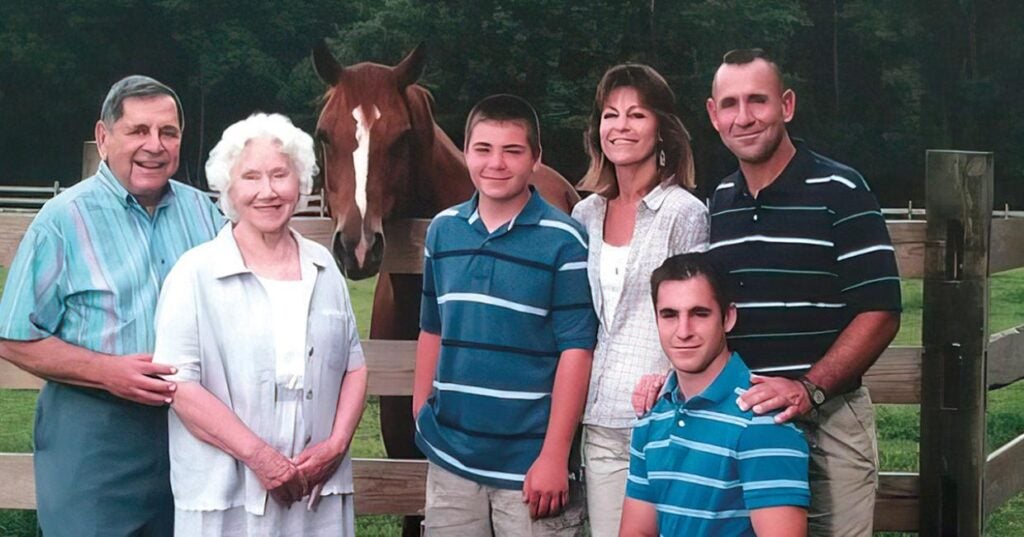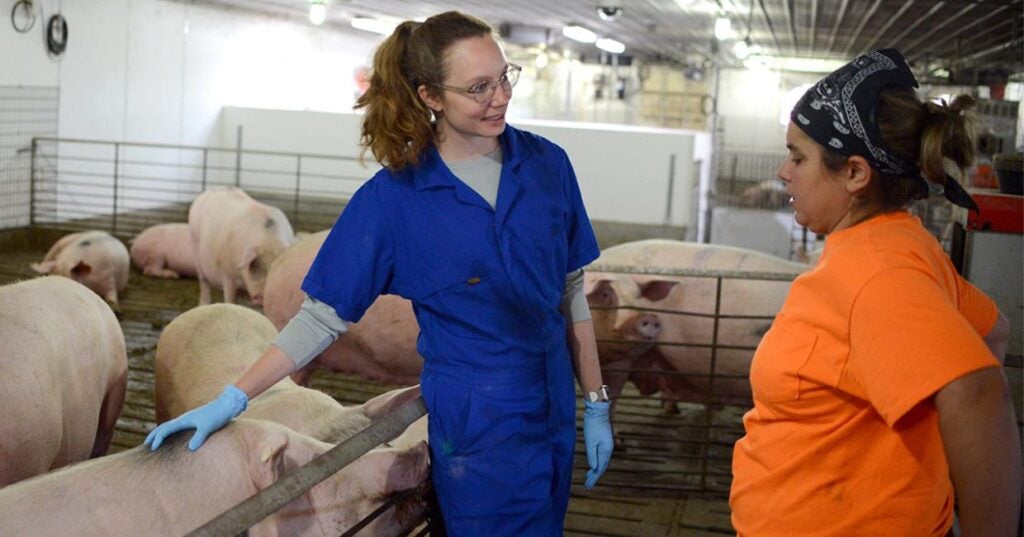Dr. Amber Itle, V’03
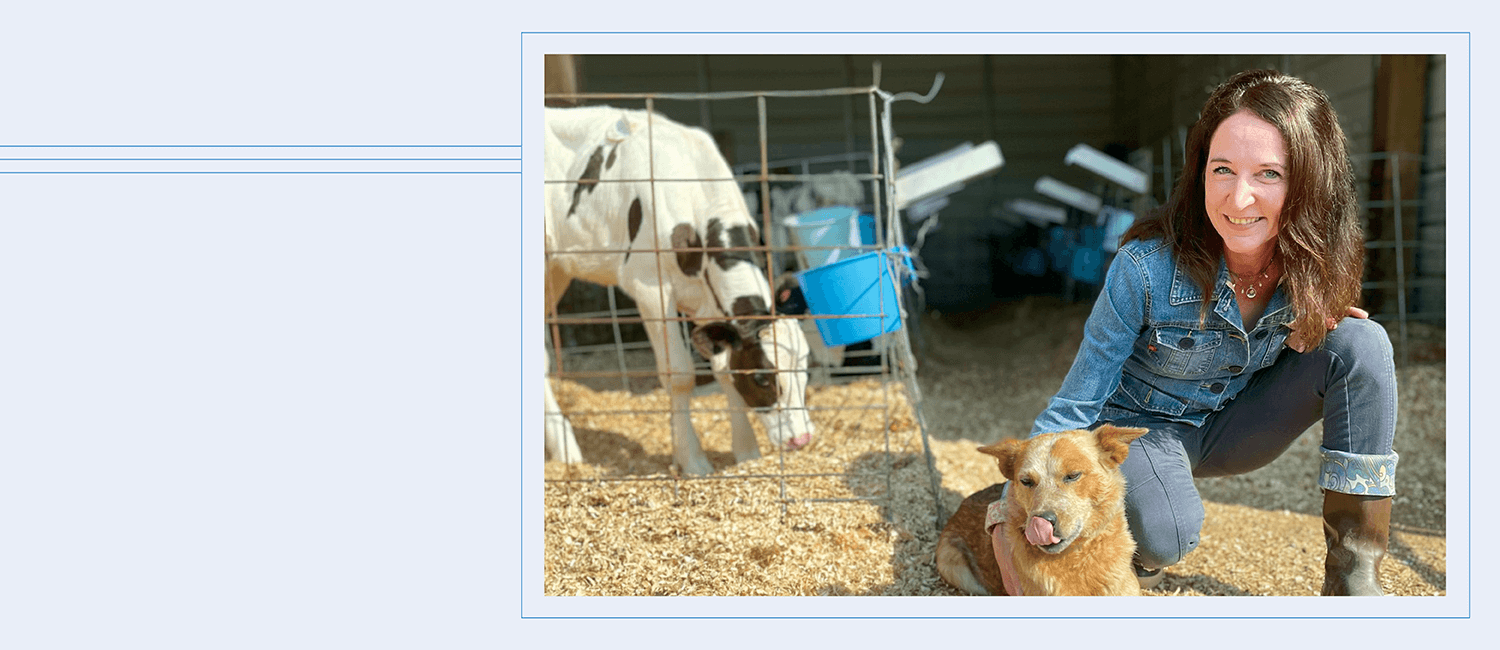
Dr. Amber Itle, V’03, grew up immersed in the world of cows on her family’s fourth-generation producer, handler dairy farm. She worked alongside her grandparents, cousins, and immediate family — including her Penn Vet alumnus father Dr. Joseph Itle, V’72, and veterinarian sister Dr. Kendra Itle — to help manage the herd, treat sick animals, perform artificial insemination, feed calves and milk cows, make ice cream and butter, and deliver products on a home delivery route.
The experience prepared Itle well for her current role as state veterinarian for the Washington State Department of Agriculture (WSDA). “At an early age, I learned work ethic and was empowered to solve problems,” she said. “I was privileged to see all sides of dairy production, regulatory challenges, and consumer values and views around animal agriculture.”
After nearly a decade in large animal private practice with a dairy emphasis, in 2013 Itle started with WSDA as a field veterinarian. She then became assistant state veterinarian before assuming the head position in March 2022.
A Mighty Mission and Impact
As the state’s lead veterinarian, Itle is primarily concerned with protecting animal health and well-being; controlling, containing, and eradicating emerging, foreign animal, and zoonotic diseases; safeguarding public health; and promoting the continuity of business for agricultural stakeholders.
“State veterinarians have many stakeholders to consider, among them veterinarians, farmers, producers, processors, and consumers,” she said. “My upbringing and time spent in private practice really impressed upon me the importance of considering all these viewpoints and maintaining effective communication with everyone. I became adept at viewing contentious issues through multiple lenses and considering diversified perspectives to find solutions.”
State veterinarians, she added, also take a One Health approach to disease. For example, WSDA has collaborated with the Washington State Department of Health and the University of Washington on SARS-CoV-2 and monkeypox research.
Keeping Watch in Washington State
Washington is a major agriculture state, with 39,000 commercial and niche, backyard, and small diversified farms operating on more than 15 million acres and requiring different approaches to disease prevention and response. Like much of the world, it too is experiencing increases in the number and intensity of natural disasters from climate change. Catastrophic landslides, floods, droughts, and wildfires impact both animal and human health, threaten food security, and create supply chain disruptions. And it all relates to Itle’s work.
During her WSDA tenure, Itle has led her team in responding to numerous animal diseases, including outbreaks of avian influenza, rabbit hemorrhagic disease, and equine herpesvirus myeloencephalopathy. She has headed efforts to increase and improve outreach to all stakeholders, expand the use of
Radio Frequency Identification tags in the state’s livestock industry, develop infrastructure to support animal disease traceability, create guidance materials for responding to animal welfare cases, and provide subject matter expertise on animal care issues during natural disasters.
“WSDA is really on the side of the house of preparing for and responding to emerging diseases, foreign animal diseases, zoonotic diseases, diseases we don’t manage every day. They have huge economic and animal welfare impacts. Our role is to make sure they don’t get into the state – into the country – and do our best to contain and eradicate them as rapidly as possible.”
She continued, “We live in a global village, where diseases spread rapidly. There are many examples of diseases that have become endemic. We haven’t had to deal with them on the scale we do today — COVID-19 and monkeypox are public health examples. Rabbit hemorrhagic disease and highly pathogenic avian influenza (HPAI) are other instances of a disease that we’ve historically been able contain and stamp out early but are now struggling to fully eradicate.” (As of publication, Washington had just confirmed its 34th HPAI case in backyard flocks.)
The Road Back to Penn Vet
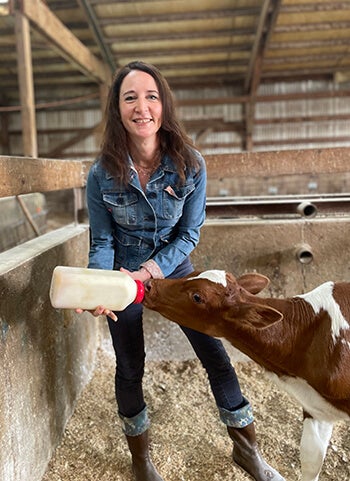 While Itle might lose sleep over seriously complex issues, she is bolstered by the collaborative nature of the community addressing the challenges.
While Itle might lose sleep over seriously complex issues, she is bolstered by the collaborative nature of the community addressing the challenges.
Past president of the Western States Livestock Health Association, Itle leads collaborative initiatives with the National Assembly of State Animal Health Officials (NASAHO).
“I’m really lucky to work with NASAHO’s executive committee,” she said. “And to be part of this highly motivated group of state veterinarians that make hard decisions, solve problems, and set visionary agendas to address difficult issues facing our animal agricultural industries.”
Penn Vet is well represented in this regulatory circle.
Many of Itle’s fellow Penn Vet alumni hold similar public service positions. “Bob Gerlach [V’82] is Alaska’s state veterinarian. Alex Hamberg [V’03] is assistant state veterinarian for Pennsylvania. Nate Harvey [V’03] is assistant state veterinarian for New Hampshire. And my vet school roommate Sunny Geiser-Novotny [V’03] is a veterinary medical officer for the U.S. Department of Agriculture’s Animal and Plant Health Inspection Service.”
Itle traces her part in this specialized circle back to Penn Vet. As a student, she worked with Dr. Thomas Parsons, Marie A. Moore Professor of Animal Welfare and Ethics in the Department of Clinical Studies at New Bolton Center and director of Penn Vet’s Swine Teaching and Research Center. Parsons’s groundbreaking and One Health–centered research explores the advancement of sustainable models of agriculture through the study of animal behavior, health, and welfare, as well as the use of technology.
“Working with Dr. Parsons in the swine barn was hugely impactful for me – his animal welfare research was ahead of its time and inspired me to study the subject after getting my VMD,” said Itle, who holds a master’s degree in animal welfare from the University of British Columbia. “Parsons and Penn Vet as an institution really emphasized critical thinking, data analysis, and application of knowledge and research to solve problems
in ways that benefit animals, humans, and the environment. Penn Vet shaped how I think about animal agriculture and welfare and the need to protect both.”
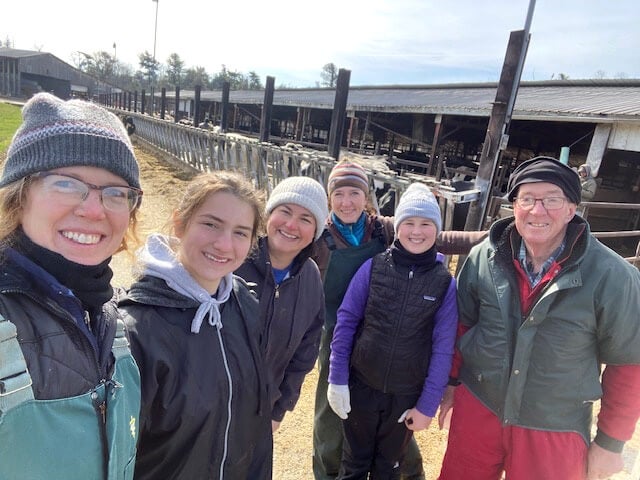
Itle expected to apply this Penn Vet framework to caring for large animals in private practice. But the opportunity to join the WSDA changed how she viewed her professional impact and influence.
“I never would have imagined myself in this regulatory position — I thought I’d be doing food animal medicine forever,” she said. “But here I am, and I love it. There’s this common misconception that regulatory veterinarians don’t do much – that we’re lazy or bureaucratic. Nothing could be further from the truth. We put in long hours, especially during a response. We work interstate and on a national platform to solve problems for our industry and stakeholders. Our work is critical. Regulators know what’s at stake for human and animal and environmental health, and we know well-considered and smart regulations are good for everyone.”
More from Bellwether
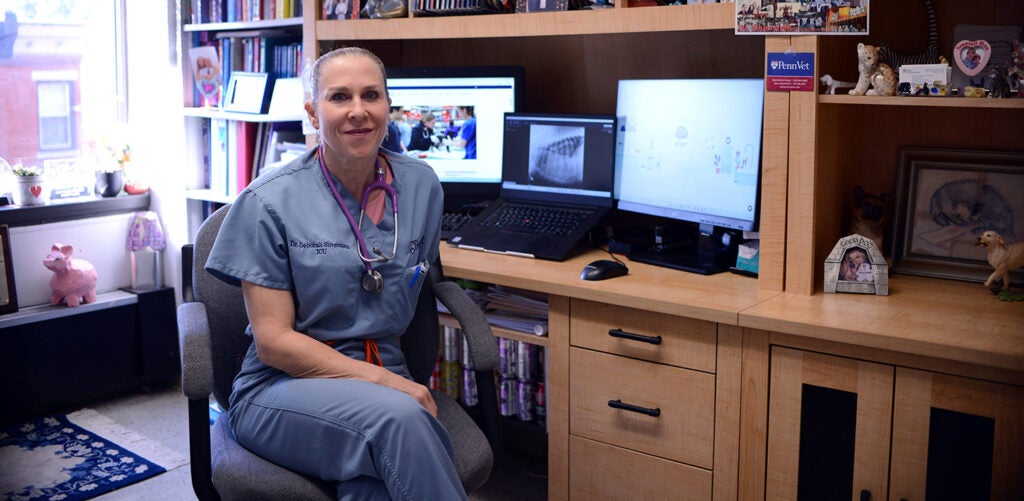
In the Office with Dr. Deborah Silverstein
Get to know Professor of Emergency & Critical Care Deborah Silverstein.
